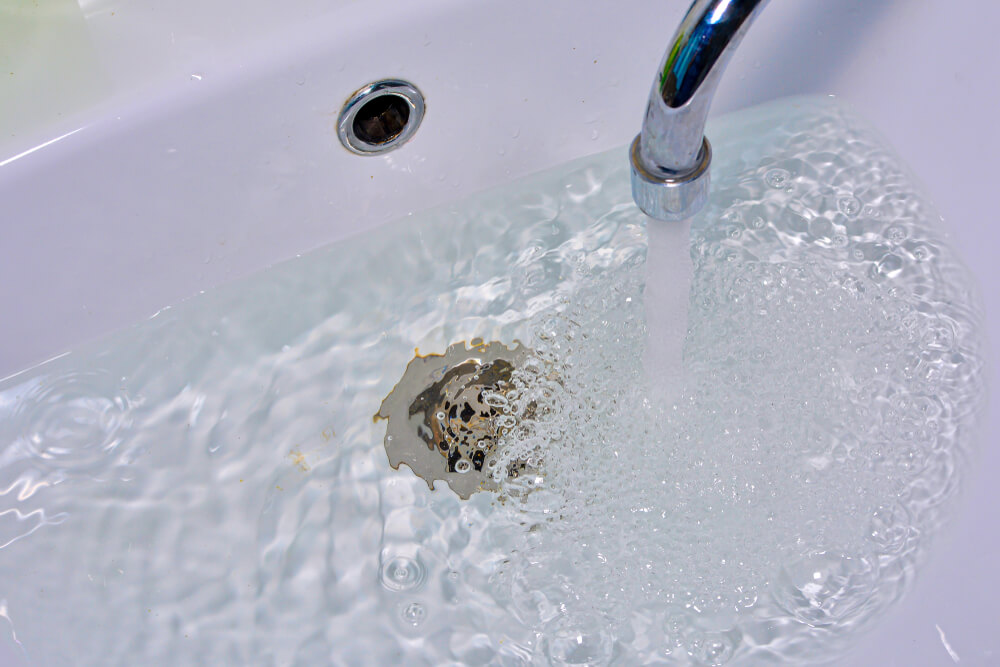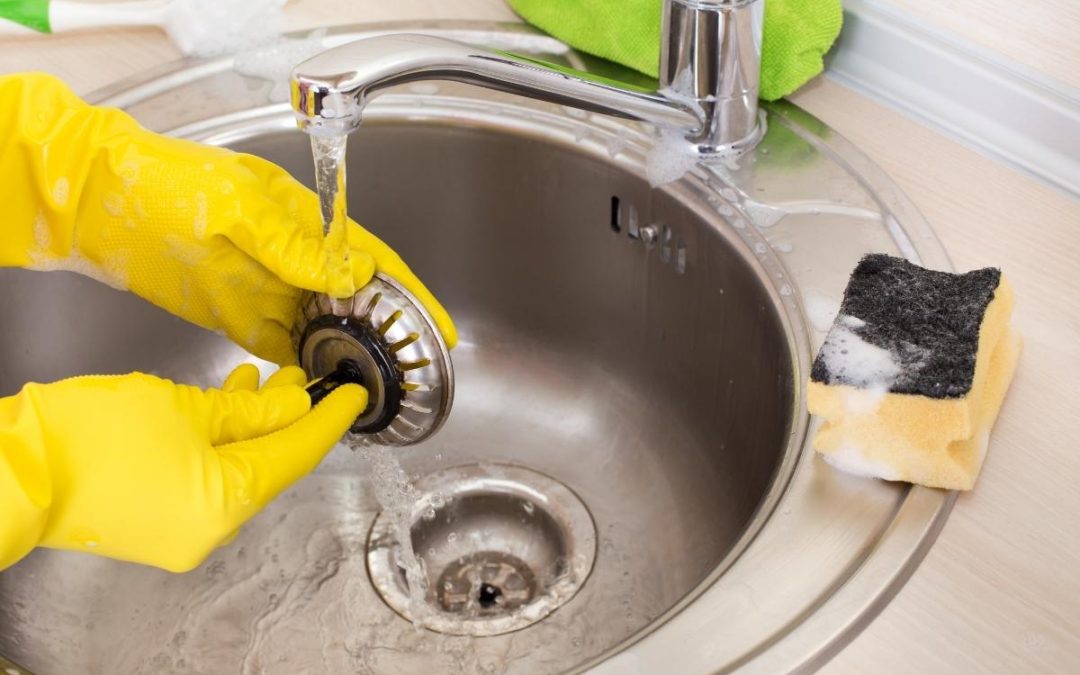What are your beliefs about How to Fix a Slow Draining Sink?

Intro
We've all existed: You're cleaning your teeth or cleaning your hands, and you notice the water merging in the sink. Rather than promptly swirling down the drain, it remains, turning your once-refreshing early morning regimen into a mini swamp scene. A slow-draining sink isn't simply irritating; it's frequently an indicator of larger plumbing concerns lurking below the surface. The good news is that a lot of slow-draining sinks can be fixed with a little knowledge, a few fundamental devices, and some patience. Prepared to tackle this project head-on? Let's roll up our sleeves and dive right in.
Recognizing the Reasons For a Slow-Draining Sink
Before you begin poking around in your pipelines, it assists to recognize what may be triggering the stagnation. Comprehending the source makes it simpler to select the appropriate fix.
Common Perpetrators Behind Slow Water Drainage
So, what's blocking things up? Normally, it's a mixture of daily debris-- believe hair, soap residue, tooth paste residue, and leftover food particles. Gradually, these little bits gather and cling to the pipe walls, gradually tightening the flow and making it harder for water to travel through. In many cases, mineral deposits from difficult water can likewise include in the gunk, developing the excellent tornado for persistent clogs.
When is it Time to Do Something About It?
If you notice the water draining slower than common, it's an excellent concept to step in faster rather than later on. Waiting as well long could result in complete blockages, unpleasant odors, and even pipe damages. If the water takes more than a few seconds to clear out after turning off the tap, consider it a red flag and prepare to put on your DIY hat.
Tools and Products You'll Need
The right tools make all the distinction. Fortunately, you will not require a fully equipped plumbing's van to do the job.
Essential Tools for DIY Services
A bettor is your best starting factor. A tiny, sink-sized plunger develops suction that can dislodge minor clogs. For even more relentless blockages, a drain snake (in some cases called a plumbing technician's auger) functions wonders. A set of gloves, a flashlight, and maybe a pair of safety safety glasses are additionally useful.
Suggested Cleaning Solutions
Light recipe soap and hot water can assist break down oily accumulation. A blend of cooking soda and vinegar is a reliable natural remedy, and chemical cleaners supply a more green technique. Keep chemical drainpipe cleaners as a last option, as they can be rough on your pipes.
Security First: Precautions and Prep work
Prior to you launch into unclogging mode, think about safety and security. You're dealing with possibly dirty water and particles, so slip on a set of handwear covers. If you're making use of chemical cleansers, guarantee the space is well-ventilated and follow the directions on the tag.
Safety Equipment and Office Configuration
Put down some old towels or cloths around the sink area to catch splashes. Eliminate any kind of products that could enter your method, like soap dispensers or tooth brush holders. See to it you have good illumination-- grab a flashlight if needed.
Step-by-Step Overview to Taking Care Of a Slow-Draining Sink
Currently, let's get into the nitty-gritty. This step-by-step process will lead you through easy techniques to recover your sink's drain.
Action 1: Eliminate and Clean the Stopper
Typically, the stopper (that little plug you push down to obstruct water) is the very first offender. Remove it carefully and wipe any kind of hair or substance entraped around its base. Wash it extensively before placing it back in position.
Action 2: Utilize a Bettor to Dislodge Debris
Got that bettor all set? Setting it over the drainpipe and give it a few company pumps. The concept is to create suction that can loosen up any type of blockage. If you see bits of debris floating up, you're on the appropriate track.
Step 3: Attempt a Drainpipe Snake or Wire Hanger
If the plunger does not do the trick, it's time to draw out the drain snake. Delicately feed it into the drainpipe and spin as you go. You could feel some resistance-- that's most likely the obstruction. Keep turning and pulling up until you remove the blockage. If you don't have a drain snake, a straightened out cable wall mount can work in a pinch.
Tip 4: Apply a DIY Drainpipe Cleanser
An all-natural cleaner made from cooking soda and vinegar can break down residual gunk. Pour half a mug of baking soft drink right into the drainpipe, complied with by half a mug of vinegar. Allow it fizz for around 15 minutes, after that flush with warm water. This chemical reaction typically does marvels for small clogs.
Tip 5: Reconstruct and Examine the Sink
Placed everything back together and run the faucet. Does the water now swirl down the tubes at a reputable rate? If yes, offer yourself a pat on the back. If not, do not anguish-- there are still a couple of more dress up your sleeve.
Alternate Methods for Stubborn Clogs
Not all blockages are created equivalent. If your sink still rejects to coordinate, consider these alternative remedies.
Sodium Bicarbonate and Vinegar Approach
We already touched on this, yet it's worth noting once again. This mild, environment-friendly approach is much safer than chemical cleansers and typically fairly reliable.
Chemical Drainpipe Cleansers
Enzyme-based cleansers make use of natural bacteria to absorb raw material. They're an outstanding selection if you're seeking to avoid extreme chemicals. Simply remember, they might take a bit longer to function their magic.
Chemical Drain Cleansers: Advantages And Disadvantages
Chemical cleansers can blow up through difficult blockages quickly, yet they're not without drawbacks. They can produce warmth and fumes, damage pipes if utilized excessively, and posture environmental threats. Use them sparingly, and always comply with the directions very carefully.
Safety Nets to Keep Your Sink Flowing
Prevention is the very best remedy. By adopting a few easy behaviors, you can keep your sink from reducing in the first place.
Routine Cleansing Routines
Wipe down the sink container and fixture area consistently. Remove hair or food particles prior to they have a possibility to wash down the drain.
Staying Clear Of Unsafe Compounds Down the Drain
Hesitate before discarding coffee grounds, grease, or coarse veggie scraps down the sink. These wrongdoers hold on to pipe wall surfaces, producing obstructions over time.
Routine Upkeep Checks
Set up a quick month-to-month evaluation. Run warm water via the sink for a few mins, taking note of the circulation. If it appears slow-moving, act quickly before it comes to be a full-blown clog.
When to Call a Professional Plumbing Technician
Occasionally, despite just how difficult you try, that block just will not move. That's when it's time to generate the pros.
Indications That Suggest a More Serious Concern
If your sink drains slowly regardless of several attempts, or if you see water supporting in other components (like your shower or toilet), you might have an extra significant pipes concern prowling much deeper in the system.
Balancing DIY Initiatives with Professional Assistance
While do it yourself can conserve you cash and offer a feeling of achievement, there's no embarassment in calling a professional. An expert plumbing professional can examine your entire pipes configuration, making certain there's no underlying damages or long-lasting trouble that could cost you much more later on.
Contrasting Prices and Long-Term Solutions
Before deciding, think about the big picture. A low-cost, quick fix may solve the trouble temporarily, but investing in an extra permanent solution might save you money and stress in the long run.
Considering the Costs of DIY vs. Professional Repairs
DIY repairs usually set you back bit more than the rate of a bettor or a bottle of cooking soda. Specialist solutions, on the other hand, come with a price tag however may protect against repetitive problems and costly repair services later on.
Buying High Quality Fixtures and Upgrades
If your sink's style adds to frequent clogs, it might be worth updating to higher-quality components or altering the plumbing design. Consider this a financial investment in your home's functionality and comfort.
Final thought
A slow-draining sink can seem like a small irritation, however it's typically a sign that your plumbing needs a little TLC. By comprehending the source, utilizing the right tools and methods, and dedicating to straightforward safety nets, you can maintain your sink flowing freely. And when all else falls short, never ever think twice to contact an expert-- your home's plumbing deserves the investment in treatment and maintenance.
Three Common Ways to Fix a Slow Drain
Baking Soda Method
Boil a full pot of water. Measure out cup of baking soda and pour it down the drain. Then take cup of the magical cleansing substance known as white vinegar and drop that down there too. Allow the mixture to fizz in the drain for five minutes as the vinegar and baking soda combine. Now dump in that whole pot of boiling water. This combination of cleaning substances should clear out anything that is causing your sink to drain slowly. If it doesn t...
Zip-It
If the baking soda method doesn t clear out your drain, it may be because a significant amount of hair and/or other debris has collected there and you need to remove it. Purchase a Zip-It tool at any home improvement or hardware store and insert it into your drain. It will catch any collected hair or debris that s blocking the flow of water. Pull it out. If it s got a big clump of hair, etc. on the end, you ve probably got your culprit.
Drain Cleaner
If these methods don t work, there is the standard drain cleaner that you can also buy in a hardware store or even your local grocery store. It s better if you can use a household solution, but these drain cleaners often work in a pinch. They re very simple to use. You generally just dump them in your drain and wait. If even this method is not effective, it may be time to call the plumber.
https://www.mrrooter.com/oneida/about-us/blog/2017/july/three-common-ways-to-fix-a-slow-drain/

As an enthusiastic reader on How to Fix a Slow Draining Sink, I assumed sharing that piece of content was really helpful. Sharing is caring. You just don't know, you will be doing someone a favor. Thank you for taking the time to read it.
Additional Resources